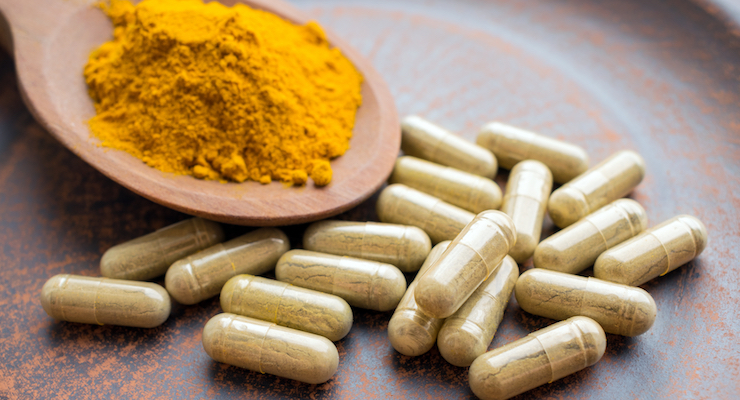Review Poses Questions of Curcumin’s Possible COVID-19 Benefit
06.03.20
A study co-authored by eight multi-site authors, including Sabinsa’s founder, suggests that curcumin could inhibit the uptake of the virus in the lungs.
While there are many candidate drugs currently being streamlined through the research pipeline in hope of finding any substantiated cure, prevention, or treatment to COVID-19, nutritional researchers have published a review suggesting the possibility that curcumin, an extract of the spice turmeric, might possibly play a role.
The review, by eight multi-site authors, summarizes the results from in silico and animal studies of curcumin on viral infections. The Novel Coronavirus enters human cells through ACE2 receptors by attaching its spike protein, and it is theorized by the researchers that curcumin could at least partially prevent that entry as inferred from in silico docking studies.
There are many other preliminary theories in the review which touched upon how curcumin might play a role in mitigating the effects of COVID-19, mostly based on the interactions that the natural extract has previously had on respiratory illnesses in in vitro, in vivo, and animal models..
They also suggest that a potential inhibitory effect on the main protease of the coronavirus based on the results of an in silico study published in the literature.
Additionally, the paper cites several studies wherein curcumin is effective in pulmonary inflammation, fibrosis, and edema.
Researchers also discussed the positive role curcumin played out under the cytokine storm conditions during other viral infections.
This review also touches on the recuperative actions of curcumin on cardiac and kidney functional damage caused by viral infections.
Finally, researchers also believe there is recuperative potential based on studies evaluating curcumin’s role in mitigating the morbid acute respiratory distress syndrome (ARDS) during viral infections in animal models.
In all of the studies reviewed, the antioxidant and anti-inflammatory properties of curcumin are the basis of its activity, though the biological mechanisms of these actions has not been fully determined.
“We are pleased to see this meaningful assemblage of the relevant work on curcumin published at a time when prevention and strong immunity is on the minds of people around the world,” Sabinsa founder Dr. Muhammed Majeed, a co-author of the study, said. “While the world anxiously awaits a permanent solution to this pandemic, it’s helpful to understand how safe herbal compounds like curcumin can support healthy immune function.” This study was published in the journal Phytotherapy Research.
The review, by eight multi-site authors, summarizes the results from in silico and animal studies of curcumin on viral infections. The Novel Coronavirus enters human cells through ACE2 receptors by attaching its spike protein, and it is theorized by the researchers that curcumin could at least partially prevent that entry as inferred from in silico docking studies.
There are many other preliminary theories in the review which touched upon how curcumin might play a role in mitigating the effects of COVID-19, mostly based on the interactions that the natural extract has previously had on respiratory illnesses in in vitro, in vivo, and animal models..
They also suggest that a potential inhibitory effect on the main protease of the coronavirus based on the results of an in silico study published in the literature.
Additionally, the paper cites several studies wherein curcumin is effective in pulmonary inflammation, fibrosis, and edema.
Researchers also discussed the positive role curcumin played out under the cytokine storm conditions during other viral infections.
This review also touches on the recuperative actions of curcumin on cardiac and kidney functional damage caused by viral infections.
Finally, researchers also believe there is recuperative potential based on studies evaluating curcumin’s role in mitigating the morbid acute respiratory distress syndrome (ARDS) during viral infections in animal models.
In all of the studies reviewed, the antioxidant and anti-inflammatory properties of curcumin are the basis of its activity, though the biological mechanisms of these actions has not been fully determined.
“We are pleased to see this meaningful assemblage of the relevant work on curcumin published at a time when prevention and strong immunity is on the minds of people around the world,” Sabinsa founder Dr. Muhammed Majeed, a co-author of the study, said. “While the world anxiously awaits a permanent solution to this pandemic, it’s helpful to understand how safe herbal compounds like curcumin can support healthy immune function.” This study was published in the journal Phytotherapy Research.













